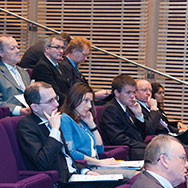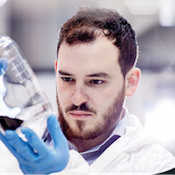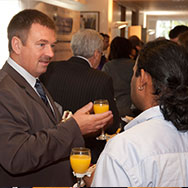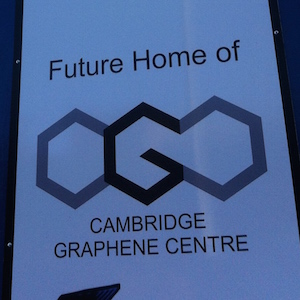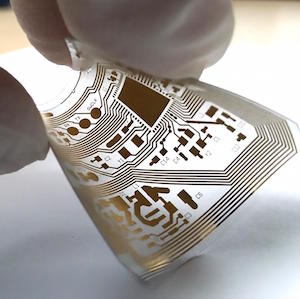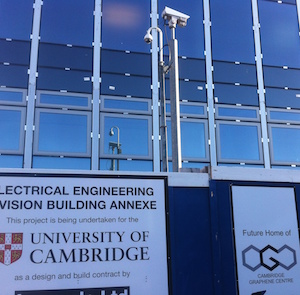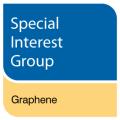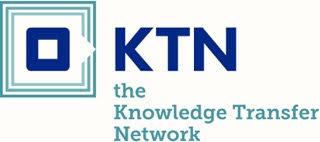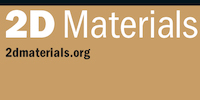The leaders joined
Cambridge Graphene Tech Days
-
Cambridge, UK - 5-6 November 2015
Conference Summary
3rd CIR Graphene Business Conference Graphene+ 2015 Cambridge
-
Opening Session Day 2 - 6 November
Distinguished Panel
-
Dr Justin Hayward MBA MMath, Director,
Cambridge Investment Research
Introduction
Session Chairman
Justin is the founder director of CIR. He specialises in assembling high-level project strategy & intelligence teams for decision-making and risk mitigation methods such as routes to value and opportunity & threat prioritisation and value network analysis. He is a theoretical physicist by training, taking advanced degrees MMath, and PhD from Cambridge University. He was the PhD student of Professor Stephen Hawking beginning in 1991. After a 6-month postdoc in Paris, he was with Deutsche Bank London from 1996-2000 as a relative value analyst, and took an MBA from Cambridge Judge Business School in 2000/1. -
Professor Andrea Ferrari
Director,Cambridge Graphene Centre
History and present of CU GRM innovations (slides not available)
Andrea Ferrari is Professor of Nanotechnology and Royal Society Wolfson Research Merit Award Holder. He is the Director of the Cambridge Graphene Centre and Head of the Nanomaterials and Spectroscopy Group at the University of Cambridge Engineering Department and Nanoscience Centre. He is Professorial Fellow of Pembroke College. -
The Lord Broers FREng
House of Lords
No slides
Alec Broers played a significant role in the University of Cambridge’s rise as a major economic force and centre of excellence for high technology and was vice-chancellor between 1996 and 2003. He has always expressed strong views about the role of engineers in society, considering that any artificial barrier between engineering and the rest of science is just as damaging as the perceived division between the arts and sciences. He sees engineering and science as two sides of the same coin and believes the Royal Academy of Engineering is ideally placed to drive home this message. Lord Broers spent nearly 20 years of his career in research with IBM in the USA, working at the Thomas J Watson Research Centre in New York, the East Fishkill Development Laboratory and at Corporate Headquarters. When he arrived back in Cambridge, Lord Broers set up a nanofabrication laboratory to extend the technology of miniaturisation to the atomic scale. -
Professor William O’Neill
IfM, Cambridge
Manufacturing Landscapes and the Drive for Impact
The UK has seen a significant change in its manufacturing landscape over recent years with many manufacturing jobs now based in high value sectors. The growth of innovation hubs such as HVM Catapults has populated the manufacturing landscape with greater opportunities for stimulating industrial growth, particularly in manufacturing sectors which are strategically important to the UK economy. At the same time academic institutions are under greater pressure to translate their research outputs and deliver economic impact. This talk will review the current innovation landscape in the UK and highlight some of the challenges and opportunities faced by academic researchers in the pursuit of commercial impact.
Bill O’Neill is Professor of Laser Engineering with the Department of Engineering at the University of Cambridge. As Director of the Centre for Industrial Photonics within the Institute for Manufacturing, his research interests focus on developing new generations of laser based manufacturing technologies. His work includes the development of high power laser technology, additive manufacturing technologies, nanoscale fabrication systems, laser materials processing, beam diagnostics and control systems. He holds fellowships from the Institute of Physics, Laser Institute of America, and is an Engineering Fellow of Downing College, Cambridge. -
Ray Gibbs, CEO
Haydale
Graphene Innovations
Ray will provide a seminal introductory update of technologies and innovations in the graphene space and their potential scale and future timelines.
Ray has seventeen year’s Board experience with quoted and private owner managed businesses in size ranging from sales of £0.5m to over £550m, with full exposure to all aspects of operational and financial management, including a successful IPO with Haydale in April 2014. -
Martin Agnew, R&D Innovation Co-ordinator
Airbus Defence & Space
Tough Conditions for Graphenes
Martin considers the often very difficult conditions for advanced materials when used in low or high atmosphere satellite applications and other uses.
Martin has detailed technical knowledge of Manufacturing, Product development & Technology across a wide base including Wireless & Optical Networks both terrestrial & SatCom, Sensors, RF/ASICs, Software. -
Andrew Houghton, Digital Lead,
Graphene Flagship
Joins distinguished panel
-
Session 2, Day 2 - 6 November
Industrial Processes for Manufacturing & Challenges
-
Sai Shivareddy & Samson Patole
Tata Steel
Industrial Graphene use and coatings
Biography - Dr Sai Shivareddy is a researcher with Tata Steel R&D and based at the Cambridge Graphene Centre. He obtained his PhD in Engineering from Cambridge University on applications of nanocarbons in energy storage. At Cambridge, he leads Tatasteel's collaborative research efforts on the application of graphene for high value steel products. Steel is indispensable to our modern way of life. Almost everything that we use is either made from, or manufactured with, steel. To deliver high performance, contemporary engineering material and to meet new market demands and customer needs, TATA steel always puts significant interest and investment in innovating new products and processes. Graphene coatings play a significant role in new value added steel products due to their multi-functional properties. Talk covers some of the developments into two parts, 1st part will cover graphene based anticorrosion coatings and challenges and in 2nd part electrochemical energy storage and conversion technologies. -
Krzysztof Zwoliński, Manager
NanoCarbon
5 reasons to do graphene transfer in Your own lab using semi-automated system for electrochemical delamination
Doing graphene transfer in your lab gives you several advantages over competitors. Of course, it would be even better to produce graphene on your site, but it takes some time and money to learn how to do. Not everybody is willing to pay for this, are you?
Krzysztof Zwoliński is World Wide Sales Manager at Nano Carbon sp. z o.o. He graduated Electronics at Warsaw University of Technology. Involved in nanotechnologies since 2010, when he started do sell Atomic Force Microscopes and nanoindenters from Keysight Technologies (formerly Agilent Technologies). -
Iñigo Charola, Business Development Director,
Graphenea
Process engineering innovation topics related to production of G Oxides & Films
Graphenes will find many uses in both existing and new applications. A range of graphene production technologies are available but focus on a few promising platforms will be key to develop successful applications. This strategy will facilitate the use and advance the performance of graphene materials. For graphenes to become successful, several things need to happen: • Material must be customized to the specific application • Production must be scaled up to match application needs • Price must reflect value in use
Iñigo Charola is Business Development Director at Graphenea. He has an extensive experience in industrial related products at marketing and sales positions. He started his career at ASSA ABLOY, a global leader in security products, then as Sales and Marketing Director at an industrial processes private company. Before joining Graphenea he is been working in the Electronic Manufacturing Services industry as a Sales Director. He holds a Bachelor's Degree in Business Administration from University of Wales, a Master in Marketing and Sales Management from ESIC and an Executive MBA from Deusto Business School. -
Krzysztof Koziol, CEO
Cambridge Nanosystems
Cost-effective, Green, One-Step Production Processes
Dr Krzysztof Koziol is a scientist, mentor, inventor and entrepreneur. He is the co-founder and Executive Director of FGV Cambridge Nanosystems, responsible for corporate governance, technology development and liaison with industrial partners. He co-shares this role with his academic positions as the head of Electric Carbon Nanomaterials Group at the University of Cambridge and a Fellow of of Pembroke College. He is also in the management group of the Centre for Doctoral Training in Graphene Technology in Cambridge Graphene Centre. Krzysztof holds a PhD in Materials Science from the University of Cambridge and is a reviewer for different international journals. He published over 130 peer reviewed scientific articles, 2 book contributions and 16 patents. Krzysztof is coordinating two large European consortia funded by the European Commission and establishing strategic materials and technology directions. -
Andy Goodwin, Commercial Director - Advanced Materials Division
Thomas Swan & Co. Ltd
A Reliable Supply Platform for Graphene and non-carbon 2D Materials
In collaboration with Trinity College Dublin Thomas Swan developed a scalable route to a premium quality, few layer graphene nanoplatelet product - Elicarb®Graphene. Based on this understanding, we have recently launched two new graphene products and will shortly launch non-carbon 2D materials, boron nitride and molybdenum disulphide.
Andy is a Ph.D. scientist with extensive leadership experience in innovation and new business growth within the speciality chemicals industry. He leads the Advanced Materials Division at Thomas Swan. Andy joined Thomas Swan in August 2012 from Dow Corning Corporation in Michigan, USA. During his 23 year career at Dow Corning he led activities in new business creation and innovation, business start-up, technology development, product development and delivery; and worked in locations in Europe and the USA.
Andy has a B.Sc. in Chemistry from the University of York, a M.Sc. in Chemistry from the University of Northumbria and a Ph.D. in Polymer Chemistry from the Open University. He also has a diploma in Mastering Technology Enterprise from IMD, Switzerland and is a Member of the Royal Society of Chemistry. He is based at Thomas Swan, Consett, UK. Thomas Swan is a world leader in the supply of carbon nanomaterials which is underpinned by our position as an independent, international, performance and fine chemicals supplier. -
Del Stark, CEO
Nanopro
Panel moderator
Biography
-
Session 3, Day 2 - 6 November
Applications: Electronics & Displays and Energy Storage
-
Kate Stone, CEO
Novalia
Interactivity in Print - No slides, but products circulated at conference.
How we combine conductive ink, traditional print and conventional electronics to add interactivity to print
Biography from Kate Stone: I am passionate about print and adding interactivity to everyday things. As a child I pulled my toys (or my siblings’ toys!) apart to see how they worked. I took a degree in Electronics, and a PhD in Physics at Cambridge University; I founded Novalia to explore the space where traditional print and conventional electronics converge and have been living in that world ever since. The deeper I explore the space, people join my team and companies start to work with us, the more I begin to see that the future looks & feels more like the past than the present, an analogue physical world with digital DNA.
-
Will Riches, EMEA Sales Manager
OCSiAl
Conductivity with Transparency in Coatings and Elastomers
OCSiAl is the world’s only industrial scale producer of single wall carbon nanotubes under their brand name TUBALL and has now launched a range of products which promote conductivity in coatings and elastomers. The use of TUBALL and this range of dispersions and masterbatches can bring conductivity to applications with previously unachievable transparency.
Will Riches is the EMEA Sales Manager for OCSiAl Limited responsible for sales of their TUBALL product. Previously with Huntsman and prior to that Prisma Colour and Holland Colours he has worked extensively throughout the plastics, rubber and coatings market for colouration and masterbatch in both product development and commercial roles. -
Dr Lee, Joung-Houn, CEO
Standardgraphene Co. Ltd
Global Market for Flake Graphene & Applications This talk will cover the applications of flake graphene in the context of global markets.
CEO, Joung-Hoon, Lee Carnegie Mellon University (Industrial Management, Economics 1996); Harvard University (Senior Executive Program, 1997); Duquesne University (M.B.A, MIS, 1999); The office of the President of Korea (Blue House, 2003~2008); Samchang enterprise vice chairman (2008~2011); IDT International Inc. (2012~2015); Standard Graphene (2015~).
-
Chris Stirling,Development Manager - Energy
Haydale
Potential for energy storage Applications with Supercapacitor Technology
Functionalisation to tailor the properties of commercial nanomaterials for their successful utilisation in energy applications is challenging. For high-surface area carbons with pre-existing surface chemistries derived from their manufacturing processes, it can be as much about what is changed during plasma functionalisation as what is added.
Chris graduated in Physics and has a PhD in Corrosion Science from UMIST. With Morgan Crucible for nearly 25 years, both in Production and Development, with a final focus on carbon nanomaterials production and thermal management materials. He joined Haydale in January 2014 as the Development Manager for Energy. -
Keynote: Paul Cain, Strategy Director
FlexEnable
Low Cost Flexible Displays and Sensors: Activating Surfaces for Wearables and Everywhere-ables
Large area flexible electronics is the key to activating surfaces in our daily lives – from wearables to car dashboards and windscreens. FlexEnable has developed a flexible electronics platform that is highly compatible with existing FPD infrastructure, to produce flexible, conformable displays and sensor arrays. Paul Cain will discuss the economic breakthrough of this approach, and the business opportunities that this creates for a new generation of electronics.
Paul Cain is Strategy Director at FlexEnable. Paul has over 15 years’ experience in the flexible display and plastic electronics industries, in both technical and strategic management roles. He has a deep technical and industry knowledge of flexible display technologies and companies. Paul has taken new display technologies from lab to fab to commercial product, and has 25 patents relating to processes and architectures that enable the high yield manufacture of flexible displays. Paul has a PhD in Physics from the University of Cambridge and an MBA from London Business School.
-
Session 4, Day 2 - 6 November
Global markets: investment, IPR, & economics
-
Nick Coutts
CIR Routes to Value & Genesys Capital
Removing the barriers to adoption & use of Graphenes with the Routes to Value Canvas
Nicholas Coutts is an expert in the development and marketing of services, Nicholas has developed a portfolio of tools, data and services which help organisations go to market more effectively and efficiently. At IBM, Nicholas was Director of Channels and Business Partner Management, EMEA, with a revenue of >$3bn and then Vice President, Global Distribution Channel Strategy. This responsibility included the development and application of the methods and processes used by the brands, known as routes to market, to reach and support customers. He has been an associate of a marketing intelligence firm since 2003, an associate of Cambridge Investment Research since 2005 and a principal associate of Fusion Experience since 2010. -
Mash-Hud Iqbal, Partner
Marks & Clerk LLP
Patent Landscape for Graphene Research
Since Andre Geim and Konstantin Novoselov were awarded the 2010 Nobel Prize in Physics for research on graphene, graphene has captured the imagination of scientists and laymen alike. This talk aims to identify some interesting trends in the patent landscape, giving useful insight into the recent progress of graphene research.
Mash-Hud is a qualified patent attorney who is experienced in drafting and prosecution work in semiconductor technologies, opto-electronics, mobile telecommunications, software, medical devices and oil well technology. He also has experience at opposition proceedings before the EPO.
After completing a BSc degree with first class honours in Electronics and Computing, Mash-Hud moved to the University of Cambridge where he gained an MPhil and PhD in Solid State Engineering. Mash-Hud's MPhil research was directed to modelling novel power devices for emerging technologies. He then carried out further research for his PhD on silicon-on-insulator (SOI) based high voltage devices for power ICs and nanoscale transistors using silicon nanowires.
Mash-Hud joined Marks & Clerk in 2008 and qualified as a European Patent Attorney and UK Chartered Patent Attorney in 2013. -
Kirill Mudryy, Investment Manager
Ens Ventures
Global Graphene & Nanomaterial Trends & Latest Investments
In this presentation Kirill will give an overview of the latests Venture Capital trends in nano-technology and in specific with references to latest investments into Graphene. He will try to explain what investment options are there for new companies and what VCs like Enso Ventures look for in new start-ups.
Kirill Mudryy is an Investment Manager at Enso Ventures. He sits on the board of three of Enso’s portfolio businesses, Picodeon Ltd Oy, Cambridge Nathotherm and Enso Detego. Kirill qualified as a solicitor with McGrigors (now a part of Pinsent Masons). -
Keynote: Sheetal Handa, Research Programme Manager
BP-ICAM
Materials Challenges Facing the Oil and Gas industry
Sheetal will offer a brief overview of the industry challenges and then detail a couple of examples of challenges from the BP Upstream and Downstream Operations. He will make people aware of the types of things BP are facing and then leave the question of 2D materials applicability as a question for the audience. -
Panel Q&A
This set of events is delivered by CIR in collaboration with the University of Cambridge Graphene Centre.
Lead Sponsors 2015
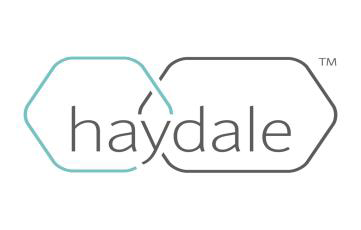
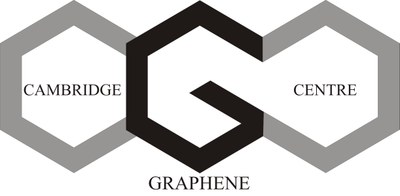
Co-Lead Sponsors 2015



Gold Sponsors



Recent Sponsors



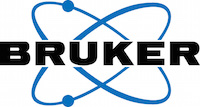
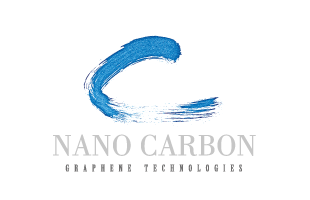
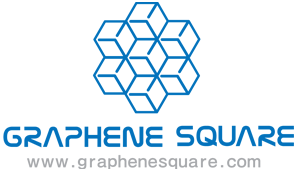
Media Communications Partners 2015
Venues

